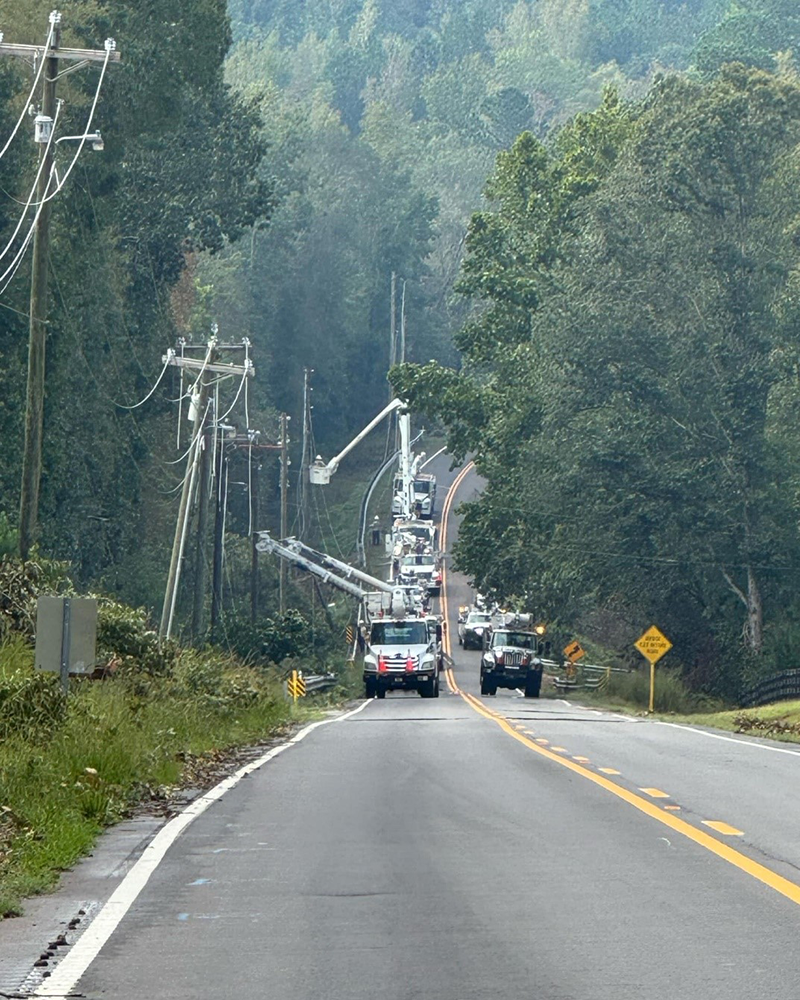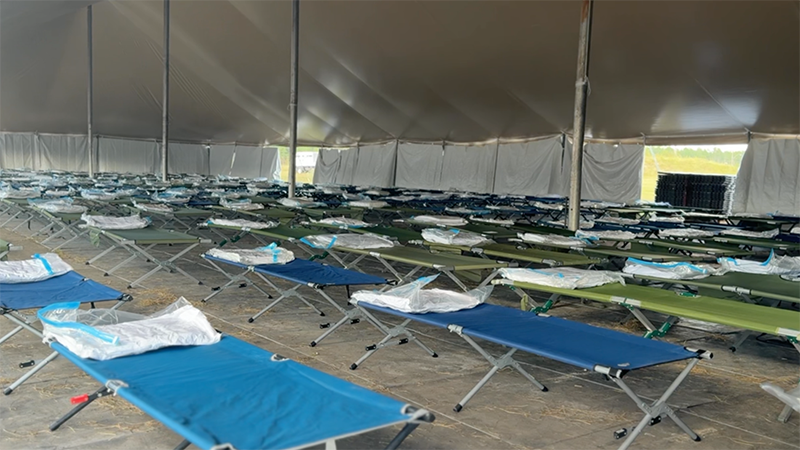South Carolina Co-op Rebuilds After Catastrophic Hurricane

When Hurricane Helene barreled up the Atlantic coast in late September 2024, its destructive force would soon carve a new chapter in the history of Aiken Electric Cooperative, Inc. (AEC). The devastation was nothing short of historic: at least 249 fatalities across affected states and 1.25 million electric cooperative members left in the dark.
For AEC, headquartered in South Carolina, the storm’s impact was both immediate and overwhelming. An estimated 49,000 of AEC’s 52,500 members lost power at the height of the storm. Nearly all of AEC’s infrastructure was paralyzed, with 27 out of 29 substations offline.
As dawn broke on the day after Helene’s landfall, the extent of the devastation became clear. Downed lines crisscrossed communities, entire neighborhoods sat in silence and critical infrastructure lay in ruins. Yet even as the scope of the challenge mounted, so too did AEC’s resolve.
"Hurricane Helene tested our resilience and determination like never before,” AEC CEO Gary Stooksbury said. “Facing unprecedented damage to our system, our employees and mutual aid partners demonstrated unparalleled commitment and teamwork to restore power to our members.”
 Crews work to restore power lines after Helene.
Crews work to restore power lines after Helene.
While the physical task of rebuilding was daunting, the immediate need in the aftermath of the storm was financial stability. With millions of dollars in repairs required and cash flow stretched thin, AEC needed rapid access to funds. Within days, CFC established an $80 million line of credit for AEC, providing much-needed liquidity for restoration efforts.
“We are grateful that CFC was there for us when we needed emergency funding,” Stooksbury said. “CFC gave us peace of mind on the financing so we could focus our attention on restoring service as quickly as possible.”
That peace of mind allowed employees from every department—engineering, operations, finance, human resources, member services and more—to lock arms with mutual aid crews in pursuit of a single goal: getting the lights back on safely and quickly.
AEC’s engineering and operations teams faced the daunting task of coordinating system-wide assessments to prioritize repairs. They swiftly designed and implemented solutions to rebuild the grid, including a record 1,600-plus utility pole replacements. In the end, 922 workers pitched in as part of the restoration efforts, including mutual aid crews from 15 states. These crews worked 16-hour shifts—some even sleeping at the office or on cots hastily set up around AEC headquarters. Each evening, safety meetings and debriefings were held to keep everyone updated on the status of the restoration and out of harm’s way.
Behind the scenes, finance and accounting managed the influx of recovery dollars and tracked storm expenses, ensuring financial resources flowed smoothly. Office personnel staffed support stations, arranging meals and sleeping quarters for weary line workers and contractors. As “Tent City” rose on Day 4—a sprawling base camp for trucks, workers and equipment—employees and volunteers kept the operation running through long, demanding nights.
 "Tent City" was the base camp for trucks, workers and equipment.
"Tent City" was the base camp for trucks, workers and equipment.
Throughout the ordeal, member services maintained constant communication, fielding thousands of calls and providing guidance, updates and reassurance. Local area offices in Edgefield and North served as hubs for logistical coordination, ensuring restoration efforts were tailored to each community’s needs.
IT teams worked around the clock to maintain uninterrupted communications between field crews and headquarters, supporting mapping and dispatch systems that optimized the allocation of resources. AEC’s marketing team documented the cooperative’s heroic efforts, sharing daily updates and stories of perseverance with the broader community.
Supply chain staff coordinated delivery of critical materials—utility poles, transformers and more—working with local suppliers. Meanwhile, Tent City doubled as a center for safety meetings and a home base for crews who became family.
The tireless work and dedication of the AEC employees and mutual aid crews paid off. In just 15 days, AEC was able to restore service to all members.
“We are proud to honor these heroes who put service above all else in such critical times,” Stooksbury said. “The tireless efforts of our employees and mutual aid crews during the recovery period are a testament to the cooperative spirit.”
In the aftermath of Helene, AEC has not only rebuilt its infrastructure but also deepened its commitment to resilience, member service and community partnership. The experience has underscored the importance of robust mutual aid agreements, cross-departmental collaboration and trusted financial partners like CFC.
As the cooperative moves forward, the legacy of Hurricane Helene will endure—not only in the completed system restoration, but in the collective memory of how a community, its cooperative and its partners responded to disaster.